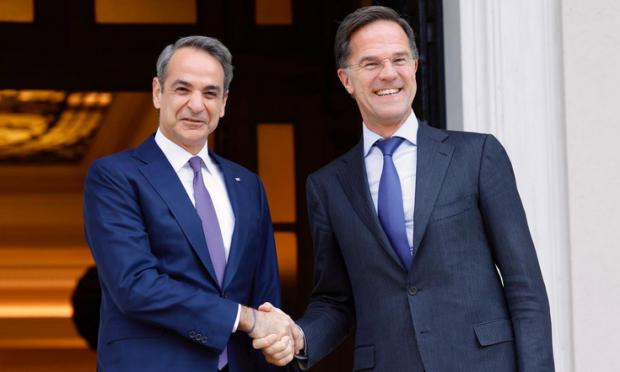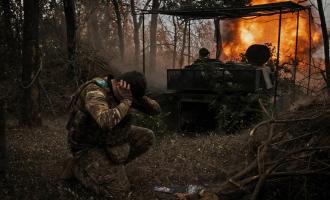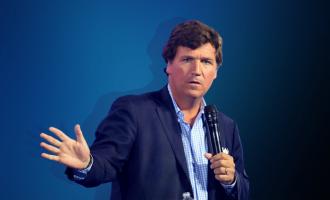Ukrainian F-16 pilots and technicians will be trained by Greek military personnel outside both Ukraine and Greece, according to initial reports about NATO Secretary General Mark Rutte’s remarks during a joint press conference with Greek Prime Minister Kyriakos Mitsotakis at Maximos Mansion, as part of his visit to Greece.
According to NATO's statement, Secretary General Mark Rutte met with Greek Prime Minister Kyriakos Mitsotakis in Athens on Tuesday, November 26, 2024, to discuss security challenges, support for Ukraine, and Greece's "critical role" in bolstering NATO's collective defense.
Mr. Rutte welcomed the fact that Greece is investing 3% of its GDP in defense, saying that “it has long prioritized security.” He also praised the country for its “high-level military capabilities and increasingly advanced abilities,” as well as its efforts to further modernize them.
The Secretary General thanked Greece for its support in Ukraine’s fight against Russian aggression. Just last month, Athens signed a bilateral security agreement with Kyiv and announced that it would accelerate the training of Ukrainian pilots and technicians on F-16s, “strengthening their hand in this brutal war.” “Our support for Ukraine has kept them in the fight, but we need to move further to change the trajectory of this conflict,” the Secretary General added.
Mr. Rutte emphasized that the use of North Korean weapons and troops by Russia, Iranian drones, and Chinese dual-use goods have contributed to an “increasingly dangerous” security environment and represented a “challenge to global peace and security.” During his visit to Athens, the Secretary General also met with Greek Minister of National Defense Nikos Dendias and Minister of Foreign Affairs Giorgos Gerapetritis.
For his part, the Greek Prime Minister said in front of the cameras: “Good morning. Today, we welcome my good friend Mark Rutte here in Athens, in his new capacity as NATO Secretary General. I am absolutely confident – we had the opportunity to cooperate together for five years in the European Council – that this combination of experience, knowledge, and skills will allow him to successfully lead the Alliance, something particularly critical in this difficult period we are going through.
In our first meeting, we had the opportunity to address all the hot issues of international current affairs, as well as the strategic priorities of NATO. We particularly discussed Greece’s constructive role, because indeed our country is recognized as a strong pillar of security, stability, and democracy in this sensitive and turbulent southeastern flank of the Atlantic Alliance.
And with Greece's special interest clearly directed towards the Southern Neighborhood, especially under the shadow of the tragic developments in the Middle East, I would also like to express my hope that this time the negotiations for a ceasefire in southern Lebanon will succeed, so that at least this front can be closed as soon as possible.
And of course, we examined what is happening on the war fronts in Ukraine, with a shared position that support for Ukraine must continue, especially during the winter, which has already begun. This means that we remain committed to the package of measures from the Washington Summit. Our country has stood firmly by the defenders for over a thousand days now, since this illegal invasion began.
We also agreed on one of the fundamental priorities for all allies, the need to strengthen our collective defense. This goal, of course, requires a strong defense industry, significant investments, but I believe we had the opportunity to discuss many times, also at the European Council, a more functional relationship between NATO and the European Union, in order to further strengthen the European pillar of the Alliance.
Greece invests a little over 3% of its GDP in defense. We are among the leaders in Europe, and I would like to remind you that we were investing over 2% in defense during the very difficult years of the memoranda, when other European countries were investing much less than that. We have also submitted specific proposals in Brussels regarding the strengthening of European defense—especially to find fiscal space, particularly for those countries that want to invest more in this area, so that all member states can be more effectively fortified—and the need for a common missile defense system.
After the recent developments in Ukraine, I think this initiative is more relevant than ever. It is an initiative that would strengthen and complement the role of the Alliance on our continent. And I believe the time has come for us to discuss how this necessity will be realized in practice.
And of course, in our meeting, we had the opportunity to reaffirm our commitment to the precious legacy of our 72 years of presence in the Alliance, and at the same time, the strong will of our country to continue down the same path.
Finally, we jointly acknowledged that, in the face of the complex challenges shaping our time and our world, we must build bridges of cooperation with our partners. We must move forward together, with faith in the fundamental principles of freedom, democracy, and solidarity, with the necessary and unwavering commitment of all to the observance of International Law, but—let me emphasize—also the international treaties. International treaties form the basis of the international security architecture, which, of course, particularly concerns the sensitive region of the Western Balkans.
Dear Mark, your presence here today in Athens, in your new capacity, underscores our shared commitment to these values. Therefore, I welcome you once again to Greece with the words of the Dutch philosopher Spinoza, which remain relevant after nearly four centuries: “United, we more easily conquer what we need, just as we more easily repel those dangers surrounding us.” He said it very well four centuries ago.





